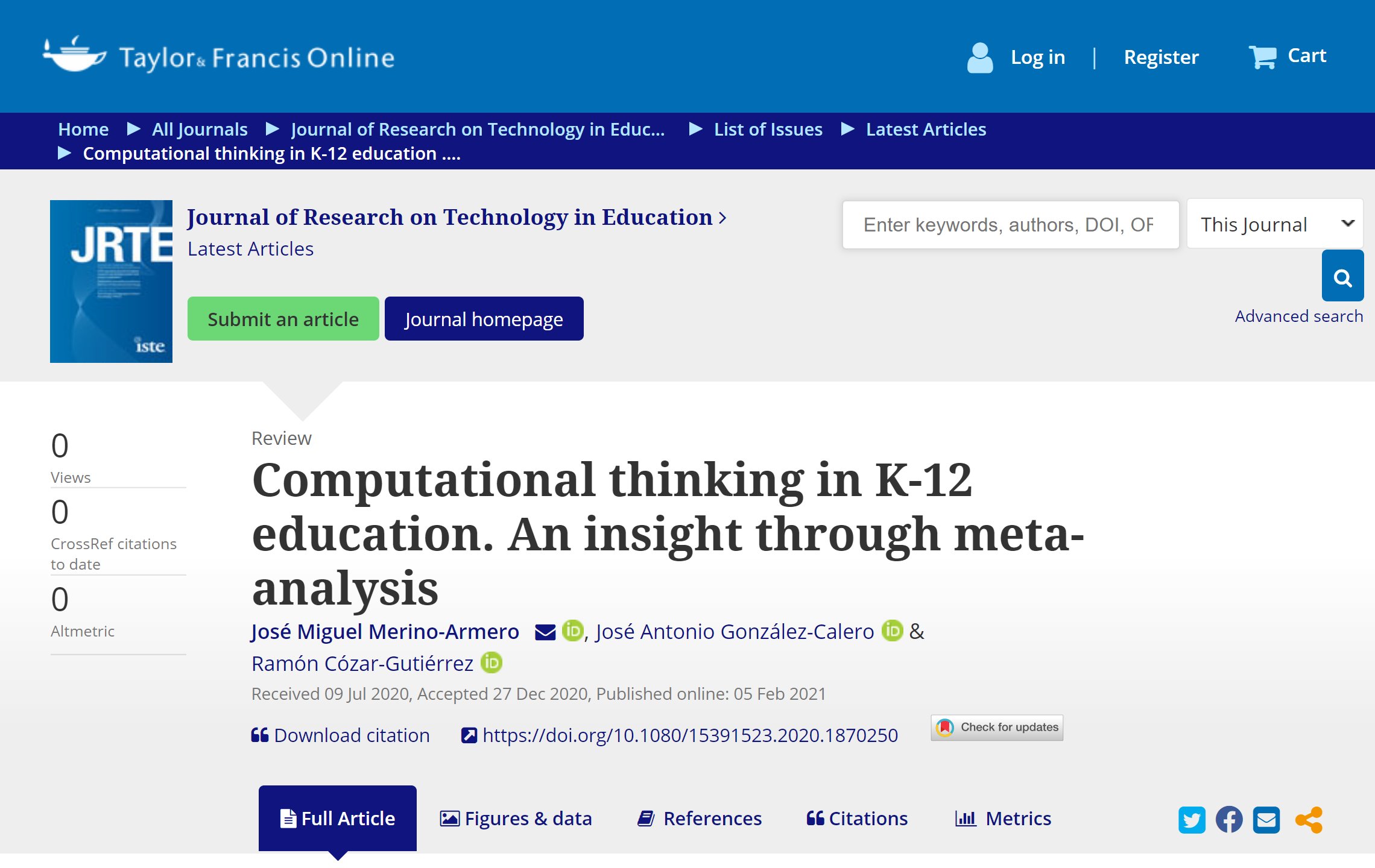[et_pb_section fb_built=»1″ _builder_version=»4.8.1″ _module_preset=»default» custom_padding=»0px|||||»][et_pb_row _builder_version=»4.8.1″ _module_preset=»default» custom_margin=»-3px|auto||auto||»][et_pb_column type=»4_4″ _builder_version=»4.8.1″ _module_preset=»default»][et_pb_text _builder_version=»4.8.1″ _module_preset=»default» min_height=»82px» custom_padding=»23px||0px|||»]
Acaba de publicarse en la revista Journal of Research on Technology in Education el artículo «Computational thinking in K-12 education. An insight trough meta-analysis» de José Miguel Merino, José Antonio González-Calero y Ramón Cózar-Gutiérrez.
The interest in computational thinking development at pre-university education stage is increasing. In this study, a meta-analysis was conducted to address two main objectives: (a) to analyze the effectiveness of empirical interventions in K-12 education for the development of Computational Thinking (CT); and (b) to identify and evaluate the variables that influences the effectiveness of the interventions. The analysis was especially focused on the intra-group effect sizes. Interventions show large effect size in the development of CT in the comparison between pre- and post-tests (g = 1.044). Among the different types of interventions, programming is the most efficient learning tool.
Cita:
Merino-Armero, J.M., González-Calero, J.A., & Cózar-Gutiérrez, R. (2021) Computational thinking in K-12 education. An insight through meta-analysis, Journal of Research on Technology in Education, DOI: https://doi.org/10.1080/15391523.2020.1870250
[/et_pb_text][/et_pb_column][/et_pb_row][/et_pb_section]

